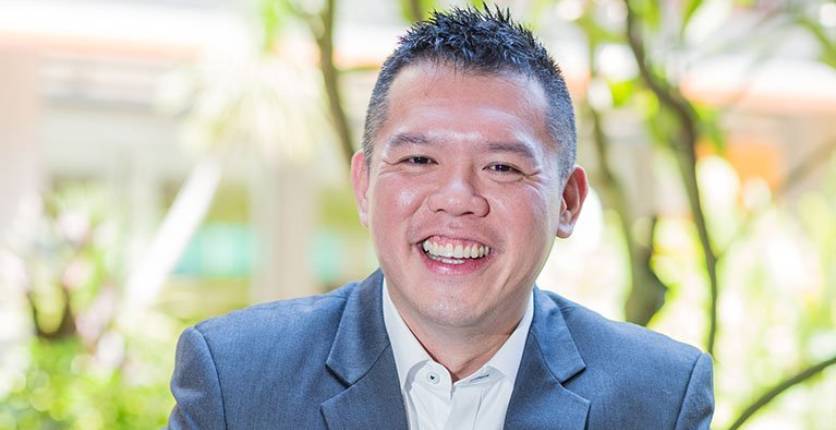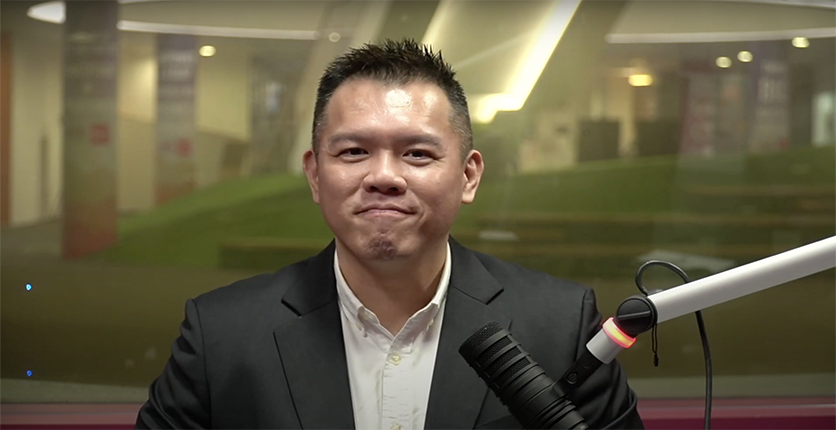Starting on a new career, whether you are a newbie who just graduated and are now just embarking on a new job, or as a middle management staff who’s thinking of changing career midways, always come with a fair set of challenges and issues. In this career series, we speak with experts in various fields to get their tips on how to ease into a new job, what you should do to excel and how to further your career prospects.

In the first interview, we approach Derrick Chang, the CEO of PSB Academy to gather his views. At PSB Corporation and PSB Academy, Derrick worked with the Senior Management on acquisition, divestment, partnership and corporate learning opportunities. He was appointed Chief Operating Officer in April 2013, and thereafter, the role of Chief Executive Officer in April 2017.
1. Share with us what do you do in your work?
As a CEO, I run the organisation. I’m in charge of the strategy, laying out the vision, the mission, and how to drive the organisation to fulfil the vision and mission set for us.
2. What are the things to know when a jobseeker starts out on a new career?
When you are starting your new career, it’s always important to firstly, identify and learn more about yourself. It is critically important because you need to know who you are, what you stand for, what you aim to do before you even start to look at the opportunities out there. The next step is to identify the opportunities. There are many job careers, many openings, many types of careers and many opportunities for you to consider. But before you jump in, understanding yourself is critical.
Secondly, find a job that you like. Find something you like to do, and it will no longer be just a job. It is going to be doing something that you love doing. So I think that it is important to, before you start a new career, before you transit to a new career, or before you join the workforce, step back. Understanding who you really are, what you intend to do, and then look out for opportunities out there, and then I’m sure you can land yourself a good career.
3. What do hiring managers look for in candidate selection?
Hiring managers look out for many things in a candidate. Before you go for the interview, the first step is to prepare your qualifications, experience and who you basically are in terms of your profile in your CV. Once you get through the door for the interview stage, hiring managers look out for one very important key factor, which is attitude and passion. Your ability to be passionate about what you do, how you can bring forth your values to the organisation, and how you can contribute to the organisation is a critical factor in what hiring managers look out for. During the interview, share your inner thoughts about who you are, what you do and what is your passion. Most importantly, be yourself.
4. How can a new staff excel in the first 100 days of their new role?
The first 100 days is actually very critical for a new staff. It depends on what you take on in the organisation, as a mid-career, as a fresh entry, or as a senior position. But it all boils down to three things: listen, observe and understand. You need to understand your expectations of the company on you and your reporting officer’s expectations on you. Understand what they want you to do and listen to advice by colleagues – from there you should be able to excel in your first 100 days.
5. How can you make the next career move based on your strengths?
It is important to identify your strengths. Strength drives us, drives who we are and what we do. For example, if you are an extrovert who don’t like your current job of doing paperwork sitting behind the desk, searching for a new career move in another organisation or in another part of your organisation to do the same role again will not let you excel. Conversely, if you are somebody who is very shy, who prefers to sit at your desk and interact with computer processes instead, if your current job requires you to deal with people you are going to be in a very difficult position. So, it is important to understand your strengths, where does your strengths lie, and then look out for opportunities within the organisation or outside the organisation that fits your strength.
6. How can you develop yourself for the next promotion?
It is important to recognise that promotion and performance are the same but yet not the same. Promotion is where you move up to the next level in your career. It signifies that you are able to handle a larger scope of work doing more things. Performance means that you are doing your current job at a much higher required level. So, it is important to understand if you have the aptitude and the ability to deliver at a higher level. It is not just about doing your work and saying to your bosses, “I have done this excellently and I deserve to be promoted”. It is not… it goes beyond that. It is the ability to now think on a higher level, think strategically, and look beyond your current performance; it is important to be able to understand this and internalise this. Remember, it is not always about “because I did very well in my current role, I deserve to be promoted”.
7. How can leaders and managers become better coaches?
That’s an interesting question, how can leaders and managers become better coaches? I saw something online which states “a leader without a title, is better than a title without the ability to lead” and I think that this is very apt. It’s important as a leader and a manager to be able to excite, be able to drive and be able to motivate people, but not through your rank, your title or your position in the organisation. It’s about the ability to lead with the heart. Be transparent with your colleagues and show that you care for them. Then, you will be a good leader.
8. How has job search changed in the new normal and what can job seekers do to enhance their chances of landing a job?
Job search has changed drastically over the last 365 days. Interviews have now gone online. and what is critically important is that job search is very different now. I want to emphasise the importance of networking and getting a referral. Companies depend on referrals nowadays to assess a candidate. Therefore, widen your network, especially when you are in National Service or you are in any clubs or society, know more people by widening your social circle. Job nature has also changed. Many people have been working from home and working from home is likely to be the future. The future of work is no longer in the physical office environment where you report for work at 9am and knock off at 6pm. Times have changed. You need to be self-directed, self-disciplined and always think about what else we can do to excel. I think that’s the future of work moving forward.
9. How to handle stress in the new normal?
It is okay to ask the question, “Are you okay?”. At the PSB Academy, we go by this tagline, “Are you okay?”. In this world of the new normal, I think it is important to recognise and acknowledge that we need help. It is also important to create a self-supporting structure, help each other go through tough times, and to talk things out with your family and friends. Inculcate the ability to keep to a schedule and to draw the line between what is work and what is personal life. And when stress becomes too high, take a breather – go for a walk, do some exercise and most importantly, constantly ask your friends, family and colleagues, “Are you okay?”.
PSB Academy is part of the SAFRA Bond-Free Education Scheme. Click here to read more about the sponsorship scheme and here to sign up for it.
This Career Advice Series and its accompanying interview videos is brought to you by SAFRA with the support of people analytics expert IDENTI3. Visit www.Identi3profiling.com for more information.
Watch out for our next Career Advice Series featuring more expert advice!







